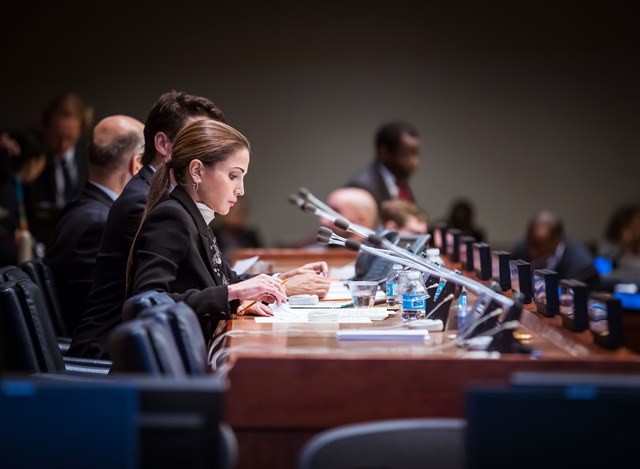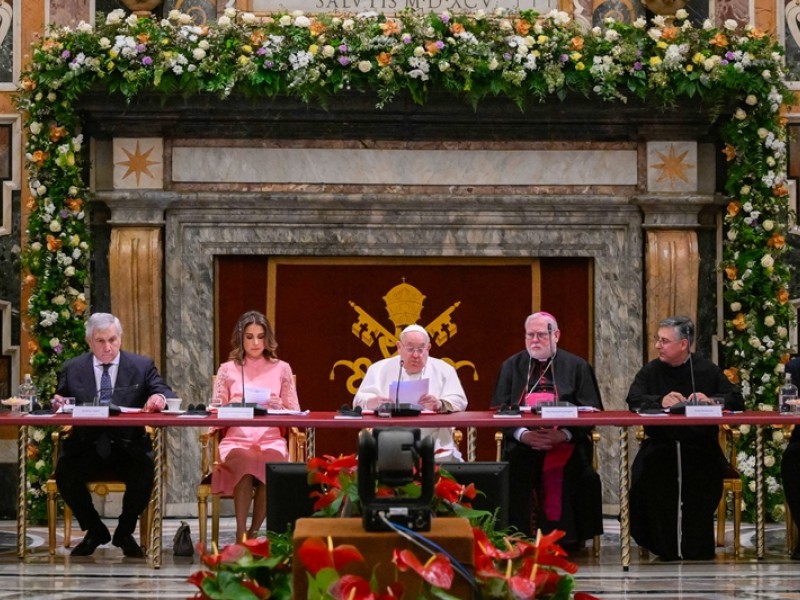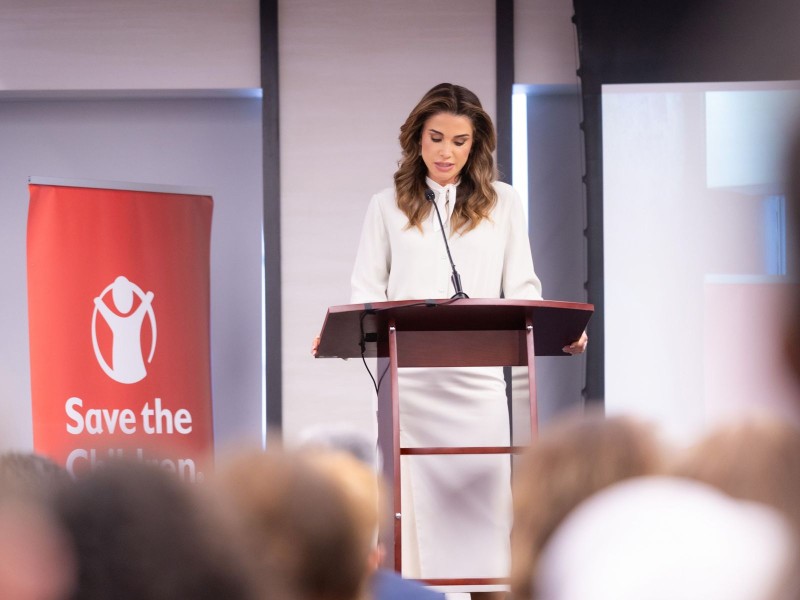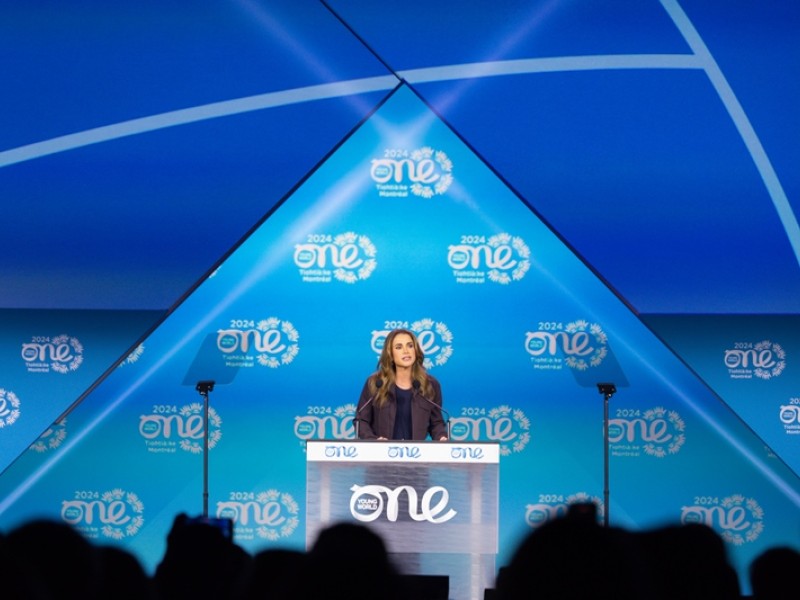Queen Rania's Speech at UN Summit for Refugees and Migrants - NY, USA

Thank you, Prime Minister Trudeau. And thank you all for being here.
Earlier this year, I visited the Kara Tepe camp on the island of Lesbos, Greece. I sat with families in their 4x3 makeshift rooms. I walked with them along the grounds. The sun was out, but the air was heavy: full of hopelessness, exhaustion, and fear.
While I was there, I heard the same questions over and over again:
“Is this home?”
“Will we be sent back?”
“What do I tell my children?”
And, most of all, most urgently:
“Where do we go from here?”
These questions are being repeated 65 million times every day. In Latin America. Africa. Asia. Europe. And across the Middle East.
Global forced displacement has hit a record high. It is a record of tragic proportions. Millions of people have had the misfortune of being born in a place so wracked by violence, poverty, persecution, or insecurity that they had no choice but to leave.
To leave on foot…To leave by boat…To leave packed in trucks… not knowing what the next day would bring… much less where the future would lead.
Their question—“Where do we go from here?”—must be our question too.
It is a question that every nation, every government, every citizen must answer.
Our world is in the midst of a refugee crisis—but let’s not be confused by that label.
This crisis is not just about refugees.
Nor will the solution simply be for refugees.
This crisis is about the future of our interconnected world. About human dignity and decency.
And our commitment today, to share responsibility for this future, is the only way ahead.
So it’s an honor to co-host this roundtable with Prime Minister Trudeau. I look forward to a vibrant, productive discussion with the many thoughtful people in this room.
I would also like to thank Secretary-General Ban Ki Moon for his leadership on the issue of refugees and migrants. His own experience of displacement and recovery in war-torn Korea is a testament to the value of international cooperation when hope at home is in low supply.
As many of you know, Jordan is the world’s second largest host of refugees per capita.
In a country of 6.6 million Jordanians, we have opened our doors to 1.3 million Syrians fleeing violence in their homeland—just as we have opened our doors in the past to Palestinians, Iraqis, and others seeking a safe haven.
I could not be prouder of the generosity my countrymen and women have shown.
And many others have shown generosity, too. But it is no match for the towering need. Last year, foreign assistance covered barely one-third of Jordan’s cost of hosting refugees.
So, together, we must do more—and must do more with less. And it cannot fall to the countries closest to the conflicts to shoulder this responsibility alone.
The response of the family of nations today will shape our world for decades to come.
Will we leave refugees to languish in camps and settlements and slums? Or will we give them the tools to contribute to the new economy and rebuild their homelands when the time comes?
Will we watch our political, economic, and social institutions fall apart, and allow terror and instability to ripple outward? Or will we partner across countries and sectors to come up with sustainable solutions?
In Jordan, we are determined to craft opportunity from crisis. We are working with the World Bank, the EU, and others in the international community to transition from aid and relief toward development and investment.
In 18 Special Economic Zones across the country, private companies that put down manufacturing roots will now have greater access to the European market and investment incentives, while creating jobs and training opportunities for both Syrians and Jordanians.
With this pilot program, we are helping Syrian refugees develop the skills to rebuild their economy and their country… and incubating a more prosperous future for Jordanians as well.
But for creative solutions like this to succeed, we need to work together—public and private, humanitarian and development, donor and host.
The stakes could not be higher.
Last month, I watched a video that a father had made of his three young children.
It might have been any home video. Except these children weren’t playing in the backyard, or jumping on the bed. They were lying side by side, wrapped in shrouds.
Most of us can only imagine the pain of a father who has lost his children.
But as a global community, we have lost these children, too. They might have been doctors or diplomats. Olympians or artists…
And right now, with children making up half of the world’s refugees, we stand to lose millions more.
So, today, let us think of these children—the past they escaped, and the potential they hold. And let us remember that when displaced peoples ask, “Where do we go from here?,” they are asking on behalf of us all
Featured
Queen Rania's official website
This website does not support old browsers. To view this website, Please upgrade your browser to IE 9 or greater
Your browser is out of date. It has known security flaws and may not display all features of this and other websites. Learn how to update your browser



